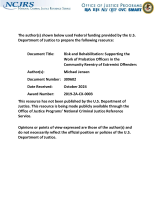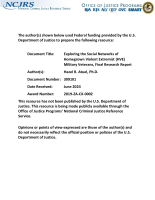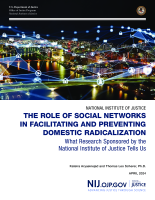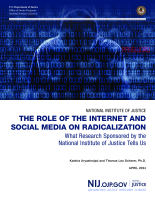The 3T model of military veteran radicalization and extremism: exploring risk factors and protective strategies
Journal
Frontiers in Sociology
Date Published
March 2025
Agencies
NIJ-Sponsored
Publication Type
Research (Applied/Empirical)







